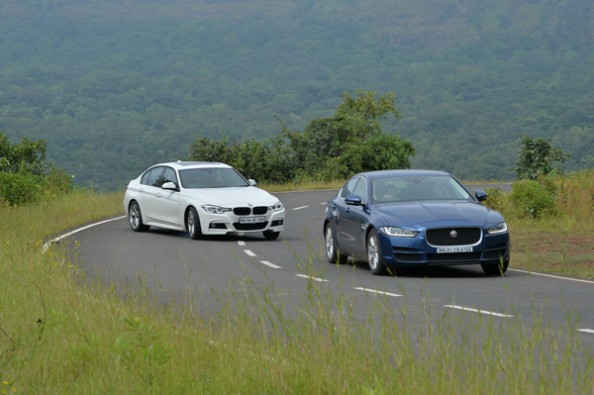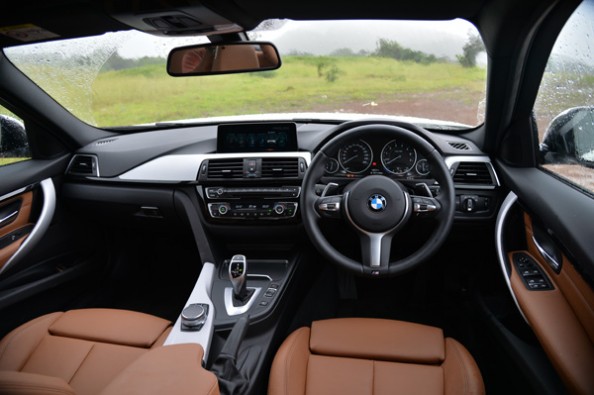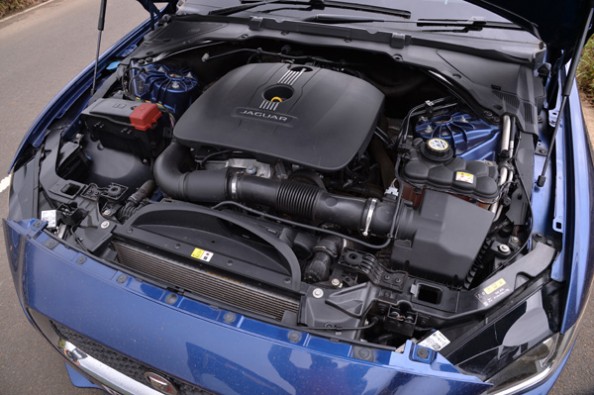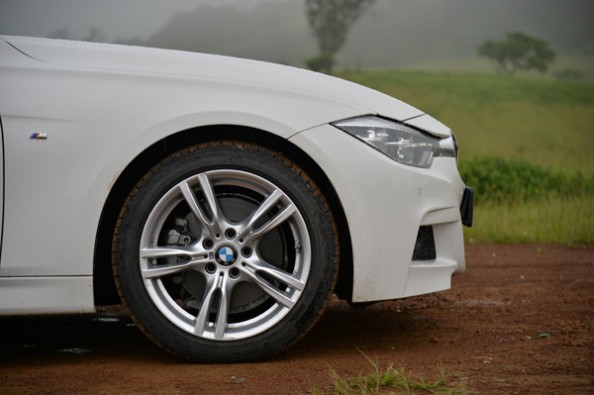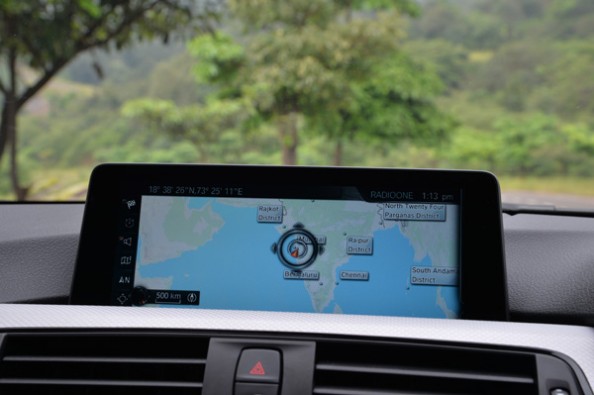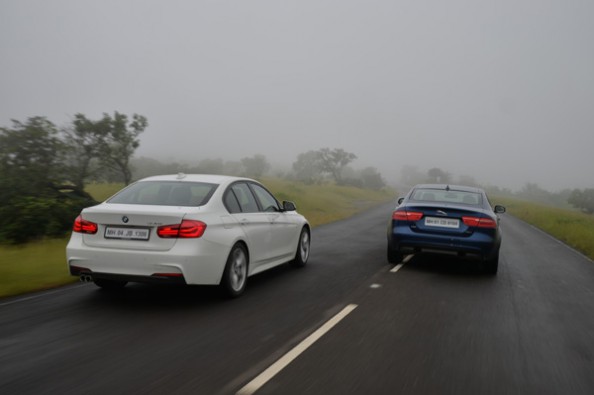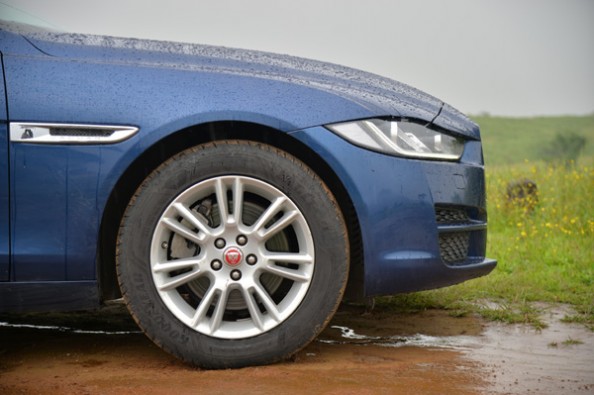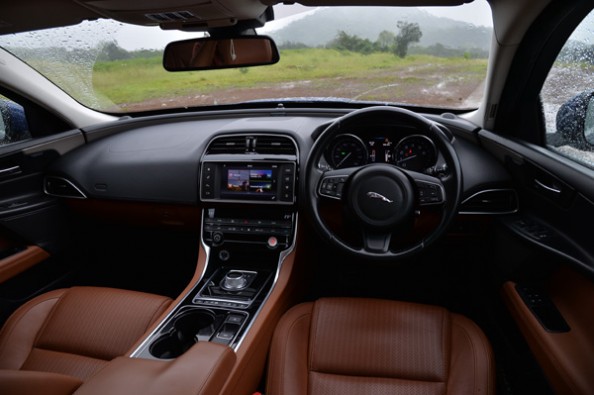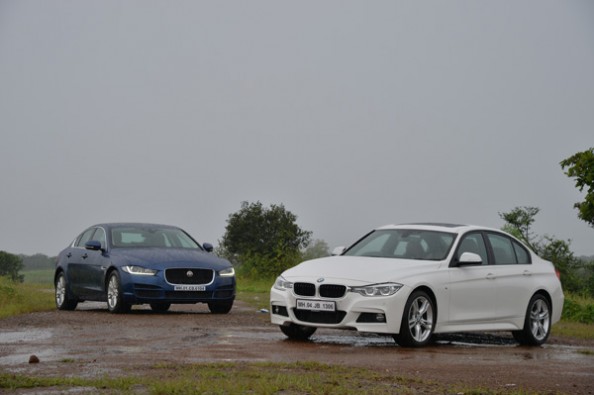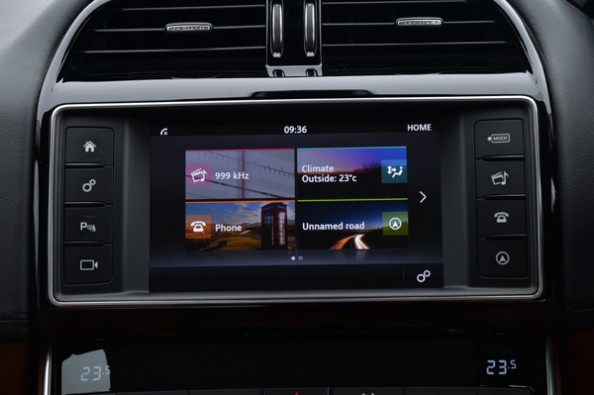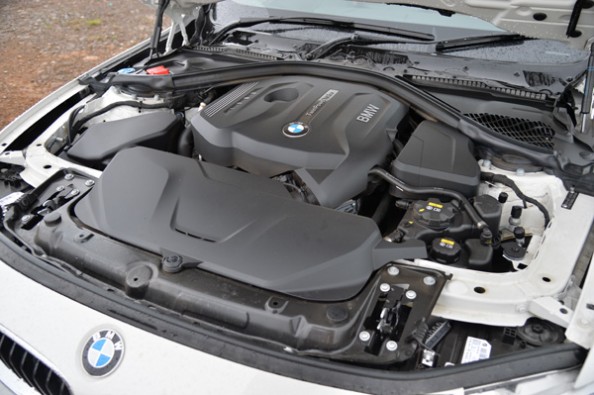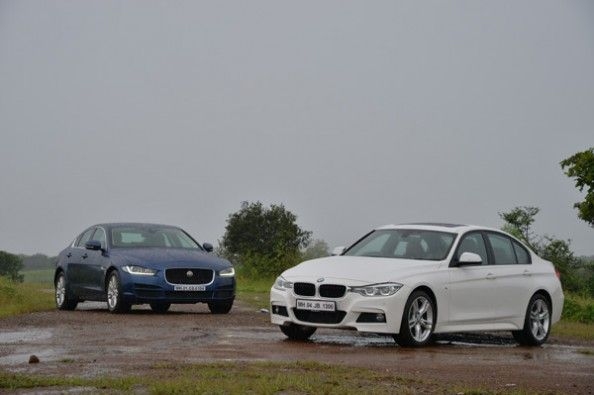
India luxury sedan buyers have always opted for diesel engines. Diesel being the cheaper fuel along with diesel motors being more efficient led to these models becoming more popular. However, things are now changing, petrol models are being reconsidered, especially by luxury sedan owners. Thanks to this increase in demand we are getting to see more variants of petrol cars that are sporty in nature as well.
On the Inside
As expected, the Jaguar and the BMW in these trims feel special, like they are supposed to. Beginning with the XE, this variant feels as welcoming as it did before; it is a good mix of performance oriented and classy design. Designers have added a ‘Riva Loop’ that runs along the dash and makes you feel at home in the driver’s seat. Once in, you realise you sit low and can see the large bulge on hood which sits in the centre. The leather and metal bits in the XE feels decent but, the quality of plastics in the car are not up to the mark.
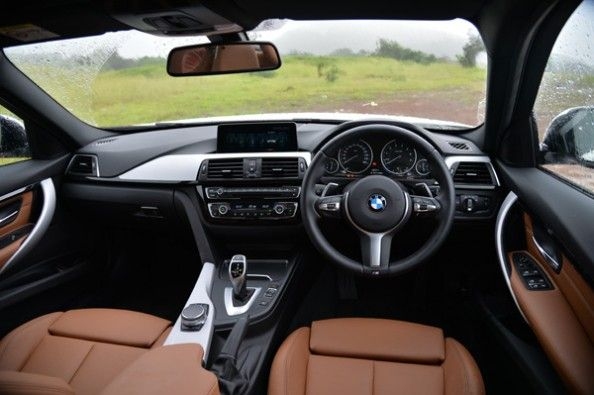
The 3-series sees you sitting even lower, however the cabin is typical BMW. It is largely familiar but has a few sporty bits since it’s an M Sport version. This model gets a thick steering wheel with oversized paddle shifters with side bolster adjustability. Overall, the seats feel slightly narrow and buyers could prefer the firmer seats in the Jaguar. When compared to the XE, every little part in the BMW feels like it’s made of good quality.
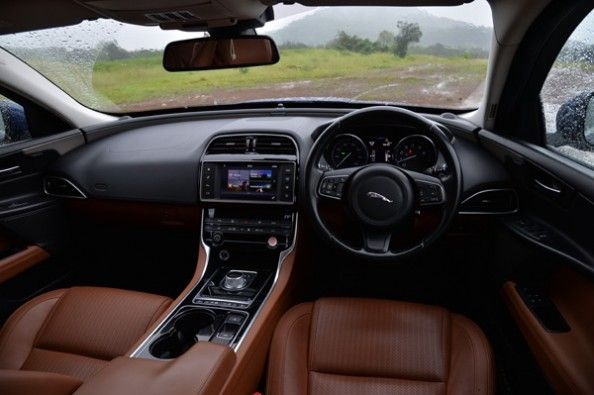
How Do They Drive?
Both the 3-Series and the XE suffer from a little turbo-lag. However, the BMW does a better job managing it, thanks to the way its gearbox is calibrated. Both sedans use the same eight-speed transmissions however, they have been set up differently. The gearbox on the BMW shifts quickly through gears at low speeds. On the XE however, be vary to experience a jerky upshift or downshift with sudden input on the throttle. However, during this time the Jaguar makes all the right noises.
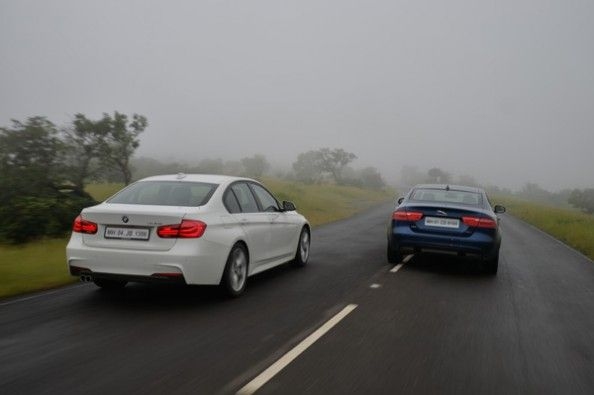
The BMW makes a dull noise in comparison. The 3-series makes up for this lacking sound by being the quicker revving engine, it also has linear acceleration. The XE has a weight to the accelerator pedal and feels like engine is working hard for the power; in the BMW power delivery feels adequate. This difference in performance could be owing to the 12hp and 10Nm advantage the BMW has.
How do They Handle?
The Jag and the BMW both are similarly designed - both cars have compact dimensions, low seating and a rear-wheel drive platform. Over the years, BMW’s have gotten softer and more luxury-oriented. However, the 3 has continued to remain sporty like the older models from BMW. It has close to perfect distribution of weight and is low slung. For India, the German carmaker has retuned the suspension for comfort, and they have gone overboard.
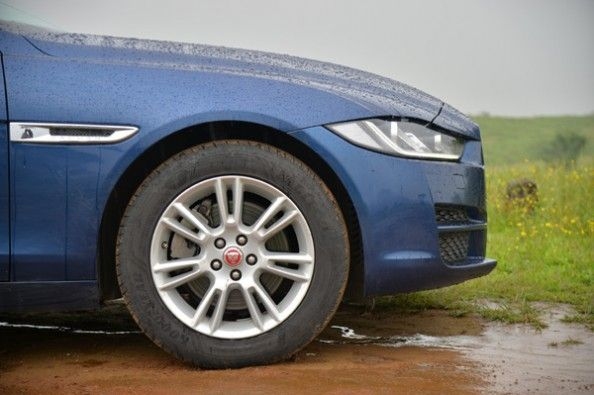
In terms of comfort, the Jaguar is really good, and it does this while sticking to the road. The British carmaker has set-up the XE’s suspension very well. Passengers do not get flung around at speed in the Jaguar like they do in the BMW. Moreover, there is no harsh thud upon hitting a pothole. The XE’s 17-inch wheels and tyres do a better job on our roads than the 18-inch ones seen on the BMW. The Jaguar is also more fun through corners, the weighty steering feels confidence inspiring. Overall, the XE might be lacking in outright performance but makes up for it with steering response.
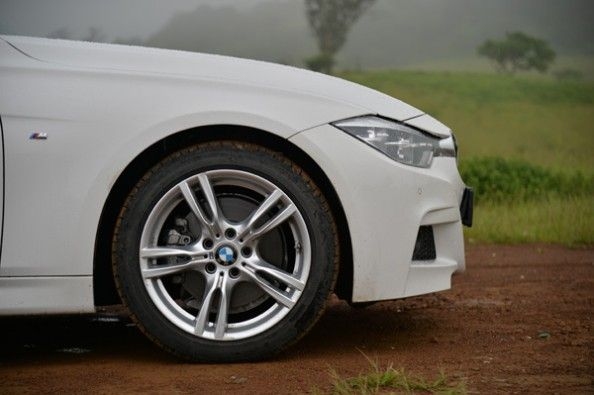
Which One Should I Buy?
Since both these cars are sporty luxury sedans, the biggest feature in these cars are the motors and the BMW has the better one. The Jaguar has an entertaining motor that packs a good punch, but the transmission is a big let-down. And this makes the better calibrated, smoother engine in the 330i a better deal, even though it will set you back by around ₹2 lakh more.
